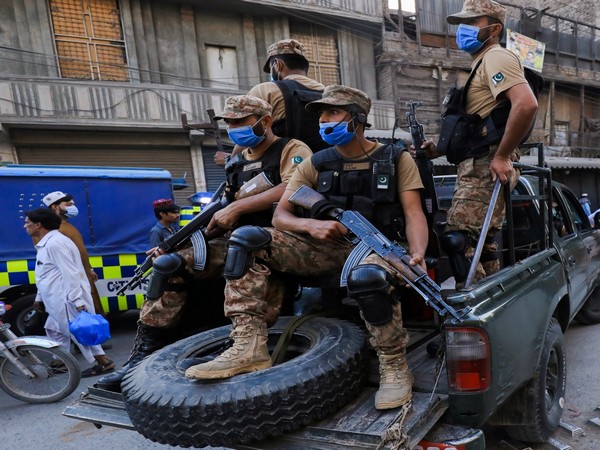Pakistan's home-grown "asset" TTP haunts its master
This year ends on an alarming note in Pakistan as many as 33 Islamist militants, who were under detention and interrogation, snatched the guns from security personnel on duty and made them hostage in their own office for three days and killed two.

- Country:
- Pakistan
The home-grown "asset" Tehreek-e-Taliban Pakistan (TTP) is now haunting Islamabad, which is again playing the 'victim' of terrorism and misleading the world community, Sakariya Kareem writes in The Asian Lite International. This year ends on an alarming note in Pakistan as many as 33 Islamist militants, who were under detention and interrogation, snatched the guns from security personnel on duty and made them hostage in their own office for three days and killed two.
The media termed the incident 'audacious' amidst a tussle between the government and an array of militant groups operating from Afghanistan, according to The Asian Lite International. Cross-border terrorism has increased in Pakistan but the reality is that Islamabad, led by Musharraf to Shehbaz Sharif, has taken both sides hunting with the army and supping with the militants to preserve their political constituency.
This year, 145 civilians and policemen were killed in cross-border terrorism. Khyber Pakhtunkhwa province the counter-terrorism department (CTD) office in Bannu was seized is located, has seen a 48 per cent increase in violence this year. The world community led by the United Nations has expressed concern and the United States, 'support' as they conclude that bigger challenges await Pakistan's counter-terrorism operations. Its politicians persist with their domestic dog-fights and abjectly look to the army that has itself faltered in tackling the resurgence in militancy. This is even as the continuing political spat has affected the army's reputation, reported The Asian Lite International.
Jointly and separately, these key stakeholders of the state seem clueless about how to tackle the Afghan Taliban whom they helped return to power in Kabul. Their expectations of gaining the much-touted "strategic depth" in Afghanistan and respite in militancy have both failed. They are now forced to focus on a 'live' western border where clashes have seriously impaired bilateral ties. Pakistan's Foreign Minister Bilawal Bhutto Zardari said Pakistan has no choice but to engage with Kabul.
Pakistan is now confused about tackling militancy. The body of domestic Islamists demands that the Pakistan Government undo the merger with the KP of the restive tribal areas carried out to facilitate counter-terror operations. Security analysts and academics at a conference in Islamabad this week concluded that each time the government has engaged in talks - the last round was officially announced as "army-led" - failed when the TTP unilaterally ended the cease-fire - at the time when the militants regrouped and spread, as per The Asian Lite International.
Media commentators note that none in the government talks of "foreign conspiracy" after the current spate of violence in KP and Balochistan has exposed weaknesses in domestic counter-terror planning and execution. Security Analyst Muhammad Ameer Rana said that the counter-terror policy and execution are 'politicised'. Violence in KP, for instance, is criticised by the federal government as the former is governed by former premier Imran Khan's party. The fact, he points out, is that KP's counter-terror operations are essentially army-led, under federal control, The Asian Lite International reported citing Dawn. (ANI)
(This story has not been edited by Devdiscourse staff and is auto-generated from a syndicated feed.)
ALSO READ
Intense Shootout in the Former Taliban Stronghold: Reinforcing Security in Northwest Pakistan
British Couple Detained by Taliban: A Plea for Help
Radio Begum's Return Amid Taliban Restrictions
British Nationals Detained by Taliban: Foreign Office Responds
Pakistan's Supreme Court to Hear Imran Khan's Petitions on May 9 Violence and Election Rigging










